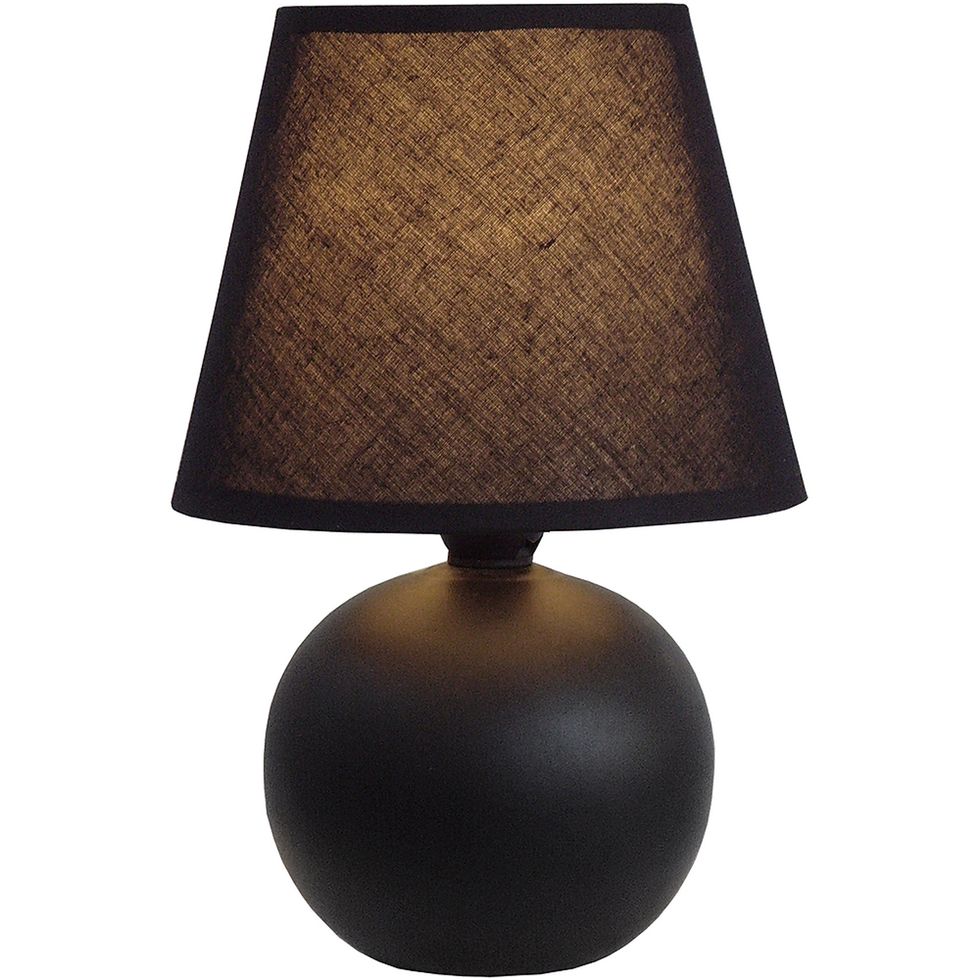We always come back to contemplating the lamp. Its name, we’ve decided, is Lamp. We say that Lamp can see no evil, nor hear it, nor speak it or taste it or anything because it has no sense organs. The closest it has to a sense, we say, is the way the dust that falls on it that affects the light it gives off, or the way our voices shake its bulb.
In this way, Lamp is as we should be. It flows with the Dao or walks along the narrowest of paths, which leads to heaven: Having no cognition, it can’t but modulate its light to fit the circumstances in which it produces light.
Lamp never thinks, “Damn this dust!” or “I wish my current were more direct.” Lamp makes light. It jiggles, gets dusty and trusts that the universe will somehow remove the dust from it if the dust should be removed.
Lamp is enlightened.
Gage, my brother, has played acoustic guitar for a while. The sticker on the side reads: “Tree-hugging dirt worshipper.” He plays through a scale using only lightly touched harmonics, and I wonder at what the inside of his mind must look like. That it knows where to touch the strings and how lightly. I’ll never know.
When Griffin, my friend from Chapel Hill who drove down with me to see New Orleans, was here yesterday, he was pretty quiet--hesitant, even. He lay on the couch, reading The Trouble with Being Born by E.M. Cioran and asked Gage and I, “How’d this guy resist killing himself for so long?”
I took the book for a couple minutes and read out particularly perplexing passages. One of them struck us all a bit more than the rest. It said something like this:
As ranchers herd cows toward slaughter, the cows seem calm, even apathetic until the last few steps. In those last steps, they always hesitate and try to turn back, having seen the others die in front of them. And so someone has to hit the backs of their legs, then they’ll stumble forward.
Cioran then said that’s how he feels every morning when he’s got to wake up, so waking someone up is the most egregious crime one can commit.
I’d kill myself if I thought that way. But Gage said Cioran might just be a special kind of masochist. Some people get their kicks being pissed. True enough. Lamp, though, is always asleep, and as we said, Lamp is enlightened.
I started to think that I might not like to be enlightened. I still think so. It’s like a glorified suicide, really, getting rid of the boundaries between you and the rest of the world. Same thing happens when they slaughter those cows. They’ll ship the meat all over, maybe make leather out of the hides, and some pieces will just be left to rot, probably, to be eaten up by bacteria and fungi and eventually spread on the wind. Death is enlightenment is death, etc. Maybe. I'll have to think on it some more.
Gage puts up his guitar and we go to meet Farnsley and his boyfriend. He rants a bit about some co-worker up in Natchitoches, sips tea, talks about how he’s developed a taste for moscato. I haven’t seen him in about three years; the way he changes hasn’t changed a bit. His boyfriend is Wiccan; Farnsley will never by religious, he says, nor spiritual. He likes his fiction in books, not in life.
But Lamp is enlightened. I think it but don’t say it. It’s fine. Farnsley and I, Gage and Lamp, Griffin and Farnsley’s boyfriend, we each live with a different pair of binoculars pressed to our faces, trying to lean back away from them, unaware they’re glued to our foreheads, and even the fact that we want to pull away means that they’ve duped us; that we’ve missed every forest for its trees and missed every tree for the intricacies of its xylem flows. But we look at tiny ridges on bark and talk of forests. That’s how it is, and it can't be nothin' else.
Meanwhile, back at Gage’s apartment, Lamp sees nothing and therefore remains unduped.



















